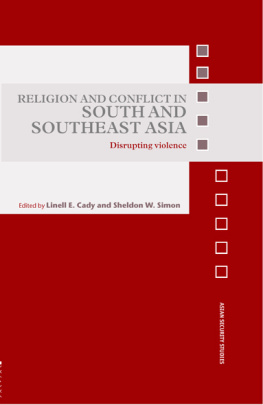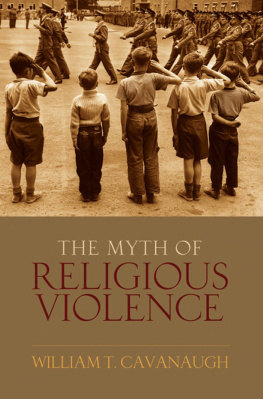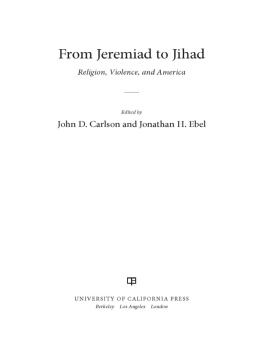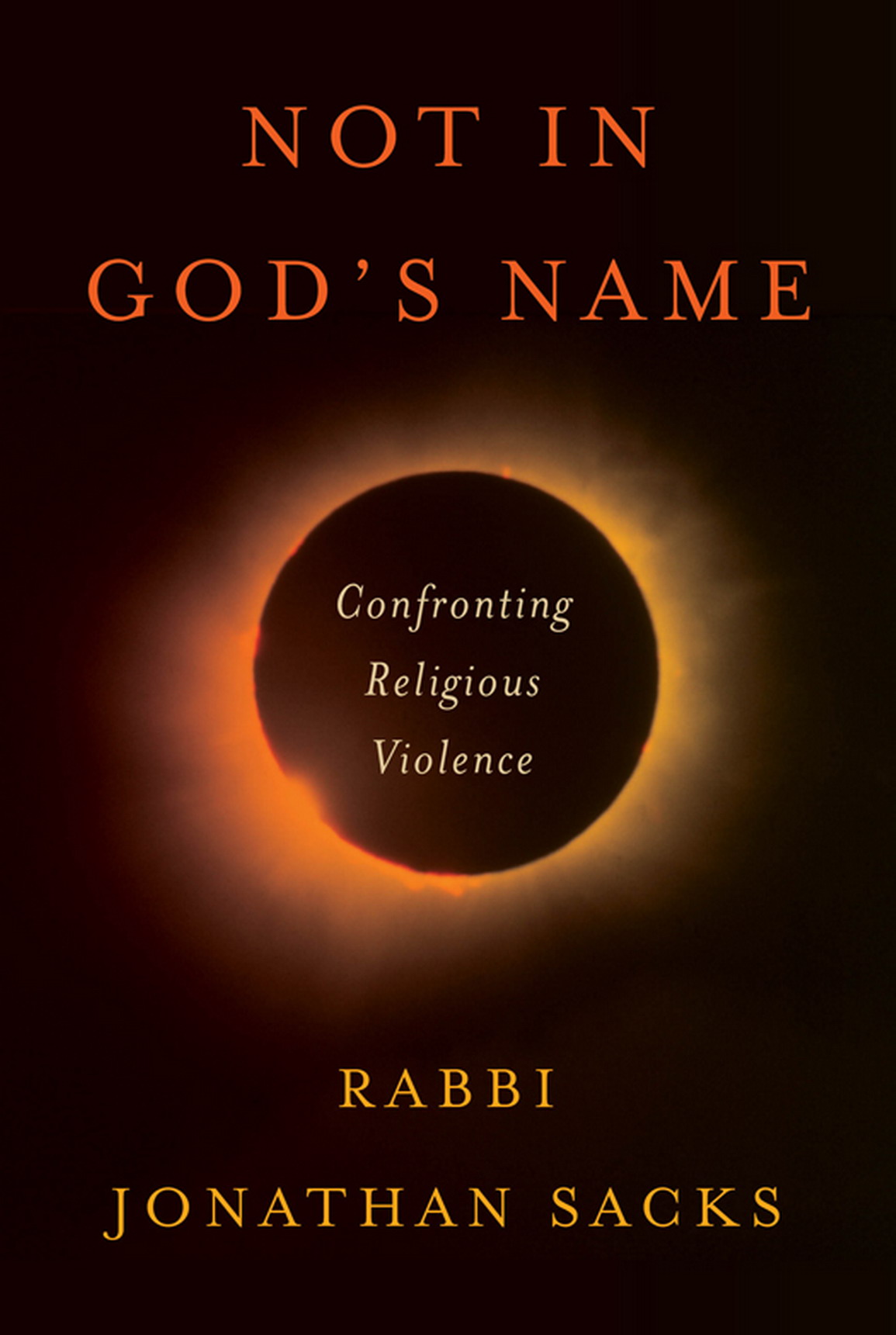Jonathan Sacks - Not in God’s Name: Confronting Religious Violence
Here you can read online Jonathan Sacks - Not in God’s Name: Confronting Religious Violence full text of the book (entire story) in english for free. Download pdf and epub, get meaning, cover and reviews about this ebook. year: 2015, publisher: Schocken, genre: Religion. Description of the work, (preface) as well as reviews are available. Best literature library LitArk.com created for fans of good reading and offers a wide selection of genres:
Romance novel
Science fiction
Adventure
Detective
Science
History
Home and family
Prose
Art
Politics
Computer
Non-fiction
Religion
Business
Children
Humor
Choose a favorite category and find really read worthwhile books. Enjoy immersion in the world of imagination, feel the emotions of the characters or learn something new for yourself, make an fascinating discovery.

- Book:Not in God’s Name: Confronting Religious Violence
- Author:
- Publisher:Schocken
- Genre:
- Year:2015
- Rating:3 / 5
- Favourites:Add to favourites
- Your mark:
Not in God’s Name: Confronting Religious Violence: summary, description and annotation
We offer to read an annotation, description, summary or preface (depends on what the author of the book "Not in God’s Name: Confronting Religious Violence" wrote himself). If you haven't found the necessary information about the book — write in the comments, we will try to find it.
In this powerful and timely book, one of the most admired and authoritative religious leaders of our time tackles the phenomenon of religious extremism and violence committed in the name of God. If religion is perceived as being part of the problem, Rabbi Sacks argues, then it must also form part of the solution. When religion becomes a zero-sum conceitthat is, my religion is the only right path to God, therefore your religion is by definition wrongand individuals are motivated by what Rabbi Sacks calls altruistic evil, violence between peoples of different beliefs appears to be the only natural outcome.
But through an exploration of the roots of violence and its relationship to religion, and employing groundbreaking biblical analysis and interpretation, Rabbi Sacks shows that religiously inspired violence has as its source misreadings of biblical texts at the heart of all three Abrahamic faiths. By looking anew at the book of Genesis, with its foundational stories of Judaism, Christianity, and Islam, Rabbi Sacks offers a radical rereading of many of the Bibles seminal stories of sibling rivalry: Cain and Abel, Isaac and Ishmael, Jacob and Esau, Joseph and his brothers, Rachel and Leah.
Abraham himself, writes Rabbi Sacks, sought to be a blessing to others regardless of their faith. That idea, ignored for many of the intervening centuries, remains the simplest definition of Abrahamic faith. It is not our task to conquer or convert the world or enforce uniformity of belief. It is our task to be a blessing to the world. The use of religion for political ends is not righteousness but idolatry . . . To invoke God to justify violence against the innocent is not an act of sanctity but of sacrilege. Here is an eloquent call for people of goodwill from all faiths and none to stand together, confront the religious extremism that threatens to destroy us, and declare: Not in Gods Name.
Jonathan Sacks: author's other books
Who wrote Not in God’s Name: Confronting Religious Violence? Find out the surname, the name of the author of the book and a list of all author's works by series.









